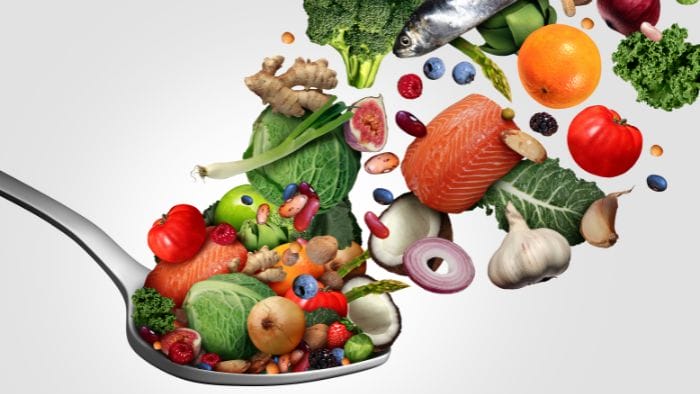by Aimee Wojtowecz

Unlocking peak performance in your workouts isn’t just about pushing yourself at the gym—it begins with what you put on your plate. Understanding the significance of proper nutrition before and after your training sessions is key to optimizing performance, enhancing recovery, and achieving your fitness goals. Let’s delve into the essential tips for fueling your workouts and feeling your best.
Nutrition serves as the foundation for a successful workout routine. Pre- and post-training meals play distinct roles in ensuring your body has the energy and resources it needs. Pre-training nutrition prepares your system for the upcoming physical demands, while post-training nutrition aids in recovery, muscle repair, and replenishing energy stores.
Practical Tips for Pre-Training Nutrition:
Timing is Crucial:
- Consume a balanced meal 2-3 hours before your workout.
- If time is limited, opt for a smaller snack 30-60 minutes prior, focusing on easily digestible carbohydrates and a moderate amount of protein.
Hydrate Well:
- Ensure adequate hydration throughout the day.
- Drink about 16-20 ounces of water 2-3 hours before exercising and another 8 ounces 20-30 minutes before.
Balanced Macros:
- Prioritize a mix of carbohydrates and protein for sustained energy.
- Include options like whole grains, fruits, and lean proteins in your pre-workout meal.
Examples:
Banana with Almond Butter:
- Provides a quick energy boost from natural sugars in the banana.
- The combination of carbohydrates and healthy fats in almond butter sustains energy levels during the workout.
Greek Yogurt with Berries:
- High in protein for muscle support.
- Berries offer a mix of natural sugars and antioxidants, aiding in quick energy release.
Optimal Post-Training Nutrition:
Protein for Recovery:
- Consume a protein-rich snack or meal within 30 minutes of finishing your workout.
- Aim for about 20-30 grams of protein to support muscle repair and growth.
Carbohydrates for Glycogen Replenishment:
- Include carbohydrates to replenish glycogen stores.
- Choose complex carbs like sweet potatoes, quinoa, or whole-grain bread to restore energy levels.
Hydrate and Replenish Electrolytes:
- Drink water to rehydrate and consider a sports drink if your workout was intense and prolonged.
- Include foods rich in potassium and sodium to replenish electrolytes.
Examples:
Protein Smoothie with Fruit:
- Blend whey protein, a banana, and some berries.
- Offers a quick and convenient source of protein and carbohydrates for muscle recovery.
Quinoa Salad with Grilled Chicken:
- Quinoa provides complex carbs and essential amino acids.
- Grilled chicken offers a lean protein source for muscle repair.
Proper pre and post-training nutrition directly influences your energy levels and muscle repair. Pre-training meals provide the necessary fuel for optimal performance, while post-training nutrition kick-starts the recovery process by supplying nutrients essential for muscle repair and glycogen replenishment. Consistency in these practices not only enhances your workout experience but also contributes to long-term fitness success.
Fueling your workouts isn’t a one-size-fits-all approach—it’s a personalized strategy that aligns with your fitness goals and training routine. By prioritizing proper nutrition before and after your workouts, you set the stage for improved performance, faster recovery, and overall fitness success. Remember, what you eat is a powerful ally in your journey towards a stronger, healthier you.
So, the next time you lace up those sneakers, make sure your plate is as ready as you are for a workout that leaves you feeling energized and accomplished.
